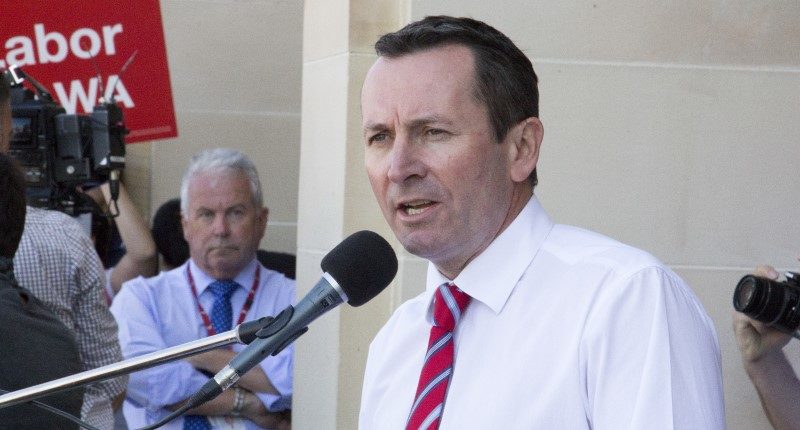- Property and politics are inextricably linked
- The landslide WA Labor government return adds certainty to the market
- Similar results have boosted the market in the ACT, NT and Queensland
Famed ABC election analyst Antony Green is a cautious fellow who likes data. He’s pretty good on an interactive screen too.
There he was, in his element, Saturday night watching the early results come in, live on ABC television. At 6.42pm, he called the election for Labor. Less than three-quarters of an hour after the polls had closed, and with only 0.7% of the vote counted.
Mr Green rarely calls an election inside an hour. Of course, when pressed, he knew exactly the last time this had happened, almost 20 years ago. The early evidence was so convincing, he said that, even after 42 minutes, he could not see how Labor could not get back in.
In fact, the early swings he saw to Labor ended up larger in the final analysis than the data was showing at 6.42pm Saturday night.

As of this morning, Labor has bagged 50 seats, and will likely end on 52, which leaves only 7 seats for everyone else. At this stage, it looks like the Liberals will have 3 (they are currently on 2 seats), and the Nationals 4 (who are on 3 at the moment).
At the last state election in 2017, McGowan’s Labor government swept to power in a landslide, winning 41 seats (a 20-seat gain). A comfortable working majority. Colin Barnett’s Liberals lost an incredible 18 seats to drop to 13 seats. What they would give for 13 seats right now.
The swing away from the Liberals was 16% in 2017, and with a further 17% swing to Labor in the 2021 poll, the Liberals already seemed doomed for the next state poll in 2025. How can you come back into power (requiring 30 seats) when you have no official party status and paid party employees and parliamentary office (you need 5 seats for that)?
Property market
Property is a “lumpy investment”. It’s not like the stock market, which provides instant liquidity, a place you can buy or sell shares in a matter of minutes.
Taking the decision to buy real estate is a major one for most people, be it a first home buyer looking to get on the bottom rung of the market, or a larger commercial asset for sale in an industrial estate. A lot of money is tied up in property in Australia (research suggests $7 trillion) and is not easily released. Often, it is backed by a great deal of lending, repaid over many decades.
One thing that stops the property market is uncertainty. When the once-in-a-century pandemic hit a year ago this week, the property market – as well as many others – stopped. Everything froze in time. No home opens. No rental inspections. Nothing.
What was going to happen? When would we get out of this? When might we get a vaccine?
As things eased up from mid-year onwards, the market started to move. And how. Property prices are now rising faster than at anytime in 17 years.
So with this latest landslide election in Western Australia comes new certainty for the state. The same government, with its known policies, could be in power for another eight years, not just another four.
Add to this, recently returned governments in Queensland, the ACT and Northern Territory have been rewarded for handling the pandemic effectively. Over the Tasman, Jacinda Ardern’s Labour government got back in with its own majority last year, having also managed COVID-19 as well as anyone.
As goes the election, so goes the property market. Auckland house sales have risen 35% in a year, with a 15% rise in property sales countrywide, the highest level in 14 years. House prices in the NZ capital have risen 24% in the past 12 months.
People will buy property when they feel wealthier, things are good, and the outlook is bright. Politicians and those interested in property, take note.








